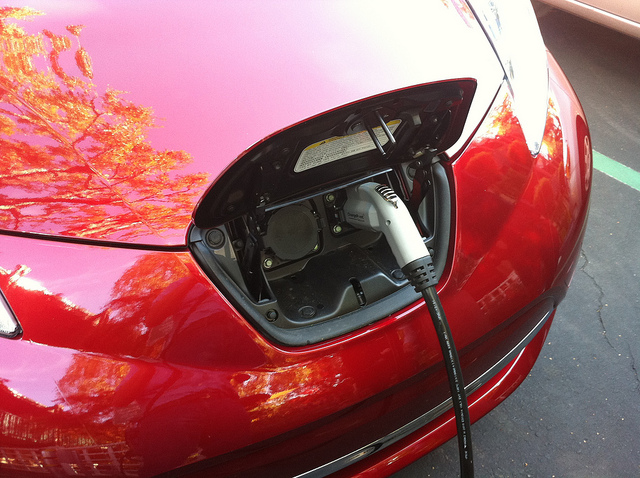
Scenes from dedication of electric-car charging station at Creekside Inn, Palo Alto, CA
It is apparently quite possible that the local utility company that provides the power to charge your new electric vehicle may not have "all its ducks in a row" when it comes to charging you properly for that electricity.
I recently bought both a 2011 Nissan Leaf and a 2011 Chevy Volt, and well beforehand, I applied for the rate that would let me recharge them with cheap power if I did it overnight.
But my utility's failure to bill me correctly made me realize what pioneers we are, and why it's important for all of us to check our utility bills carefully and promptly.
Last October, I filled out the simple form required by my utility company, Pacific Gas and Electric. I got notification about a month later that my meter had been changed from my previous "solar power system" rate (called "E6") to the "E9" rate they offer to homes with electric vehicles. They had even put a new "rate sticker" on the meter itself.
The E9 rate provides for slightly lower costs even during peak hours of use, but gives a wonderful value: Electricity during a special midnight-to-7-am period at about half the cost (less than $ 0.065 per kWh) of the E6 solar home rate (around $ 0.11 per kWh).

2011 Nissan Leaf and 2011 Chevy Volt, with charging station visible; photo by George Parrott
After several months with this new E6 rate in place, I finally looked closely at my current supply costs. I could not come up with any accounting analysis that would explain how Pacific Gas and Electric had produced the cost totals I was seeing, if the E9 rate had actually been used for my home.
After a long telephone conversation with the billing office, I found that they had switched me to the E9 rate, but that the billing office had not switched their cost calculation to that special electric vehicle rate at all.
It will now, according to their billing offices, take them about a month to sort out this mistake on their part. Meanwhile, I estimate that my current "bill" is at least $125 more than it should be. If I hadn't carefully studied my monthly statement, this "error" would have been led to my new electric Nissan Leaf costing much more than expected.
Moral: Look at your electric bills carefully once you get your new Chevrolet Volt, Nissan Leaf, Ford Focus Electric, or Mitsubishi 'i' home. The special rates often offered for such vehicles may not actually have been provided by your electric utility.
If you've already taken delivery of an electric car, what experiences have you had with your local power company?
Tell us your story in the Comments below.












